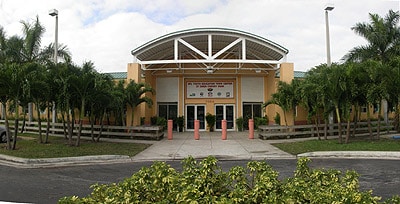Miami-Dade launches effort to relieve Haiti’s food shortage
MIAMI – Compelled by the reports of starvation in Haiti, Miami-Dade County Commissioner Barbara J. Jordan authored a resolution to establish an emergency food relief drive for the people of Haiti. Supported by fellow Commissioner Audrey M. Edmonson, the item passed successfully during the May 6 Board of County Commissioners meeting. The resulting two-week collection effort runs from Monday, May 19 to Friday, May 30.
“My heart breaks when I hear about the starvation and illness that is plaguing our island neighbor of Haiti,” said Commissioner Jordan of her decision to craft the resolution. “We could not turn our backs on their plight. I am grateful to Mayor Carlos Alvarez and to the Miami-Dade County Department of Emergency Management and Homeland Security for getting behind this effort and coordinating the collection of supplies.”
“I urge the community to get behind this effort,” added Commissioner Audrey M. Edmonson. “It is a matter of humanity and love for our fellowman. “
Residents are being asked to participate by dropping off food items at several locations around the County, including all Team Metro regional offices, Miami-Dade Police stations, Miami-Dade Fire stations and Miami-Dade Public Libraries. Collection centers will accept non-perishable, non-glass containers of the following items:
– Peanut butter
– Cornmeal
– Flour
– Cooking oil
– Powdered milk
– 100 % fruit juice (cans, boxes)
– Cereal (dry and hot)
– Rice, pasta, noodles, and other grains
– Beans (dry or canned)
– Jelly
– Pasta sauces
– Canned or dried fruits
– Crackers and snacks
– Seeds for planting vegetables and fruit
– Bottled water
– Baby food and infant formula
– Non-perishable food times
– Canned milk, tuna, salmon, meat, vegetables, soups or broth.
“Miami-Dade is proud to be able to support the Haitian community in this way,” Mayor Carlos Alvarez said. “Our residents appreciate the positive contributions the Haitian community has made to the County and the County is committed to making a substantial contribution to improving conditions for people in Haiti.”
Second only to New York City, Miami-Dade is home to the greatest number of first generation immigrants from Haiti and their U.S born children. Since economic and political conditions started deteriorating in Haiti in the 1950s, immigrating Haitians have settled and made positive contributions in education, politics and business in the county.


